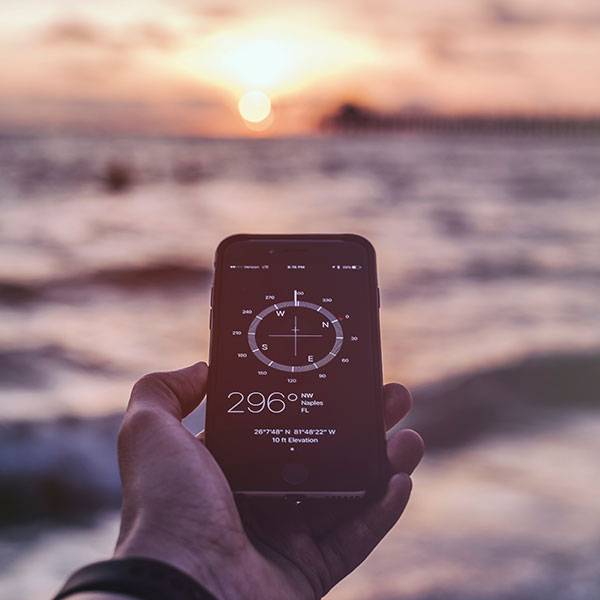GPS, for the uninitiated, stands for Global Positioning System. It is a space-based “radio-navigation” system owned by the US. The GPS system is designed to provide geolocation, as well as time, information to GPS receivers anywhere on the planet. GPS operates independently, but with internet and telephonic reception, the system can work better.
Anyone with a GPS receiver can use the system for free, which is completely maintained by the United States government. Operated by the United States Air Force, the GPS system consists of 24 satellites that are orbiting the earth. More than 72 satellites have been launched so far, but not all remain operational. The main purpose of GPS is to enable tracking of objects, vehicles and people, without being influenced by factors such as weather.
Understanding GPS better
As mentioned, GPS is a satellite-based navigation system. The 24 orbiting satellites (currently 31), which are a part of the system, are 11,000 nautical miles in the space and follow 6 orbital paths. Each of these satellites completes two orbits of the planet within 24 hours. These satellites, also known as NAVSTAR satellites, have a weight of around one ton and measure about five meters, keeping the solar panels in consideration. Since each satellite has an expected life of 10 years, replacements are launched into the orbit as required.
What is GLONASS?
GLONASS stands for Глобальная Навигационная Спутниковая Система in Russian, which translates to Global Navigation Satellite System. It is the Russian version of GPS and the Soviet Union started developing this system in 1976. According to data of 2010, this was the most expensive program for Russian Federal Space Agency.
Which is better?
As far as positional accuracy is concerned, GPS is better than GLONASS marginally. The positioning of the GLONASS satellites is different, which is why the system works better at high latitudes. This makes senses because GLONASS was designed to work for Russia, which is known for its tough terrains. Here are some of the other differences.
- As of now, GLONASS has at least 24 satellites for the system, whereas GPS has 31, with a target set at 33. The orbital height, in case of GLONASS satellites is 21150 km, while for GPS, it’s around 19130 km.
- Orbital plane inclination for GLONASS satellites is 64.8 degrees, while for GPS, the same is 55 degrees. The GPS satellites also take more time than GLONASS as far as orbital period is concerned. For GPS, the time is 11 hours and 58 minutes, while for GLONASS satellites, the time required is 11 hours 13 minutes.
Comparing in detail
If you compare GLONASS and GPS, the former doesn’t really have a strong coverage as GPS, and except for the accuracy at higher altitudes, there is no strong advantage to write about. However, when both are used together, the accuracy surely gets better. If you are in Russia or anywhere in northern latitudes, GLONASS may work slightly better, but considering the overall global needs, GPS surely has an edge. If you consider the accuracy at low-to-mid latitudes, GPS works better, and that makes it more powerful, because that’s where most of the global population lives. In fact, GLONASS wasn’t considered to be an international navigation system until 2011, as the coverage was pretty lacking in most countries and regions. Thanks to the addition of new satellites, GLONASS has improved, but for most people and users who want a competent tracking system, GPS is a preferred choice.
Final word
As far tests go, GPS is certainly better in terms of accuracy rate. Some tests revealed that the accuracy for GPS was around 6 feet, while for GLONASS, that’s around 10 feet. It should be noted that both the US and Russia are spending considerably on their latest systems, so it is likely that things will get more competitive in near future. What also makes a difference is the fact that GLONASS stations are mostly located in parts of Brazil and Antarctica, while US has stations for GPS all over the world. GLONASS will have more number of ground stations in years to come, but for GPS is leading there, as well. According to info online, Russia plans to have more than 50 stations in over 35 countries, and that can pose good competition for the US-operated GPS system.
There is no denying that GPS system has been around for longer, and if you are someone who just needs a GPS tracking system or tracking software, GPS is the one to go for. As far consumers are concerned, both offers the same, but GPS is more accessible and certainly works better in most parts of the world. GPS tracking systems are easy to use and has an intuitive user interface, making them ideal for almost anyone.












